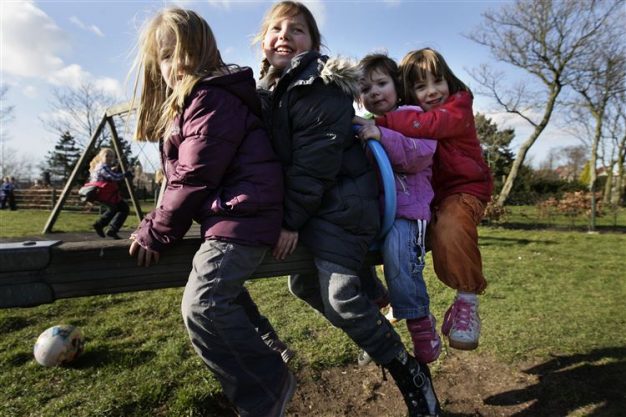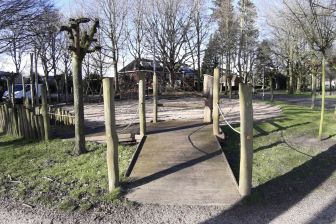
Children benefit from appropriate risk-taking during outdoor play
Taking part in a less structured activity and having lots of friends are more important to children’s happiness, according to findings from a doctoral study that was conducted in Ireland.
Child development researchers from Dublin investigated the use of outdoor, behaviour, attitutudes of outdoor of children aged 9 – 12 within their local communities. The study also examined factors that focused on an urban neighbourhood, in this case, an area of social housing designated as an area of disadvantage in Ireland.
Authentic contributions made by children
The purpose of the study was to gain a greater understanding of children’s experience in their neighbourhood. The aim was to explore the daily lived experience of a group of children, aged 9 – 12 years engaging them in a participative process, employing a range of qualitative, participatory methods, including photography, drawing, individual interviews, themed small group discussion and a peer survey (132 children aged 7-12 years).
“Throughout, the children were positioned as active research participants and the findings were presented, using their words and images to maintain the authenticity of their contributions.”, explained Margaret Rogers, researchers from the Trinity College in Dublin.
The study sought to explore the autonomous spaces of childhood, within which children enact and transact their daily lives, frequently away from the gaze and direction of adults.
Children seek autonomy
Rogers said, “Their perceptions of their neighbourhood, the intimate knowledge of its character and affordances were revealed, as were their views on local issues such as crime, anti-social behaviour and institutional neglect and the impact of these issues on their daily lived experience.”
The study focused specifically on children’s informal and unstructured place and space use. Accessing the participants’ perceptions, values and experiences of the neighbourhood and their views of ‘what would make it a better place for children’ was prioritised, revealing the children’s priorities for use of unstructured outdoor space in the company of friends.
“The importance of friends and friendship, particularly within the autonomous times and spaces in which children enact and transact their daily lives, was found to be critical to their sense of satisfaction in their neighbourhood and was shown to be an important component in promoting the children’s resilience and capacity to cope with challenges and adversities confronting them in their daily lives,” concluded Rogers.




